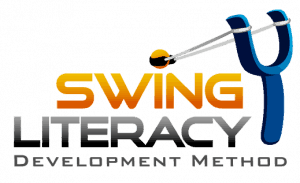A dance event (aka convention, weekender) is a combination of workshops and dances and shows. It’s usually held over a weekend at a hotel in a major city, like a conference. Dance events come in different sizes. Small dance events or workshops usually attract 50-500 dancers. Larger events (conventions) attract 500-1500 dancers. There’s a whole circuit of conventions all across the country, and at least 2 or 3 going on somewhere in North America on any given weekend. Conventions are amazing. They attract hundreds of dance addicts from across the country who show up partly for the workshops, but also partly for the party atmosphere! For many, it’s a huge social network. Because many convention-goers are experienced dancers, the level of dancing you will find at a convention is guaranteed to be higher than the level at your local studio. But, beginners are welcome and highly encouraged – you will not be the only one! This is a great opportunity to watch and dance and learn with a concentrated group of dancers who are your level and above. Attending a dance event will exponentially elevate your dancing, accelerate your learning, increase your confidence, and expand your social network. It can also change your life!
On the international West Coast Swing circuit, there are 2 types of competitions: improvised and choreographed. There are multiple divisions of each type, which are determined by ability level and by content rules.
Competitions
Choreographed Competition
Routines which are usually done by professionals dancing their own choreography, or by advanced dancers dancing choreography provided by their coaches.
Classic
Dancers perform a 3 minute WCS routine to a pre-arranged piece of music (like figure skating).
Showcase
Same as Classic, but less Swing content is required, allowing dancers to infuse other dance styles. This is the only Swing division which allows lifts.
Cabaret
This is a choreographed division which is more rarely offered on the circuit. It allows any and all types of dancing EXCEPT swing. It invites Hip Hop, Tap, Adagio, Ballroom, and Jazz to compete against each other.
Improvised Competition (aka Social Dance Competitions)
The focus of this type of competition is improvisation, just like you do at dances. They draw a song for you and you just make it up on the fly. There are 3 types: Jack & Jill (random partner, random song), Strictly Swing (pre-chosen partner, random song), and Pro-Am (your instructor is your partner, random song). Because West Coast Swing is primarily an improvised dance, the Jack & Jill competition is held in almost as high regard as the Choreography competitions. These are for all levels of dancers. If the event is recognized by the World Swing Dance Council, its contest divisions are based on qualifications by accumulation of points earned from competitions. The WDSC maintains an international competition registry which keeps track of each dancer’s points and qualification level. Events offer contest divisions for brand-new Novice dancers all the way up to the Professionals, so you are sure to be dancing with someone at the same level as you. Everyone enters at the Novice Level. An studio dancer may have completed all of the classes at their home studio and may be considered an “advanced” dancer in their home town, but on the international circuit, they still may be in the “Novice” division.
Shows
These are sometimes linked to the Competitions. The Professional competitions are so entertaining that they serve as the show itself! Sometimes there will be a “dinner show” or organized non-competitive performances. These are always in the evenings.
Training
Workshops
Each event hires multiple top international professionals to teach workshops and judge the competitions. Workshops are offered usually only between 10am and 5pm. There are several workshops offered at once, using multiple ballrooms, and each workshop is geared towards a different level of dancer, and/or a different topic of technique or style. Workshops are a great way to meet and learn from different pros, and get inspired by working on new skills. Offered during the day each day, there can be anywhere from one to 5 workshops going on at the same time, depending on the number of workshop rooms the event has booked at the venue. Workshops are taught by invited dance professionals from the local area or high-ranked professionals and Champion dancers from all over the country. Workshops are highly recommended for the beginner/intermediate dancer.
Coaching
Most dance instructors and competitors take advantage of having access to many top dancers in one place by taking private lessons. This is where they can get elite coaching, get a “checkup” on their dancing, and pick up some new moves or tricks. Targetted workshops are also occasionally available, such as judging clinics, dance instructor clinics, and critique sessions.
Social dancing
Some would argue that this is the best part of the whole weekend! The social dancing part of the weekend is a major focus, since that is the whole reason we got involved in dancing, isn’t it? There is open social dancing all evening long 6pm-6am, and is only interrupted by competitions/shows. Dancers keep late hours at conventions. The majority of dancers will stay up till 2am and many until 4 or 5am. The event arranges it with the hotel so the ballroom doesn’t close till the wee hours of the morning, if at all. Then everyone sleeps in because the workshops don’t start till 11:00am. You will be having so much fun you will want to stay up that late. Dancing is a physical skill. Like swimming, you only get better by doing it. So jump in!

